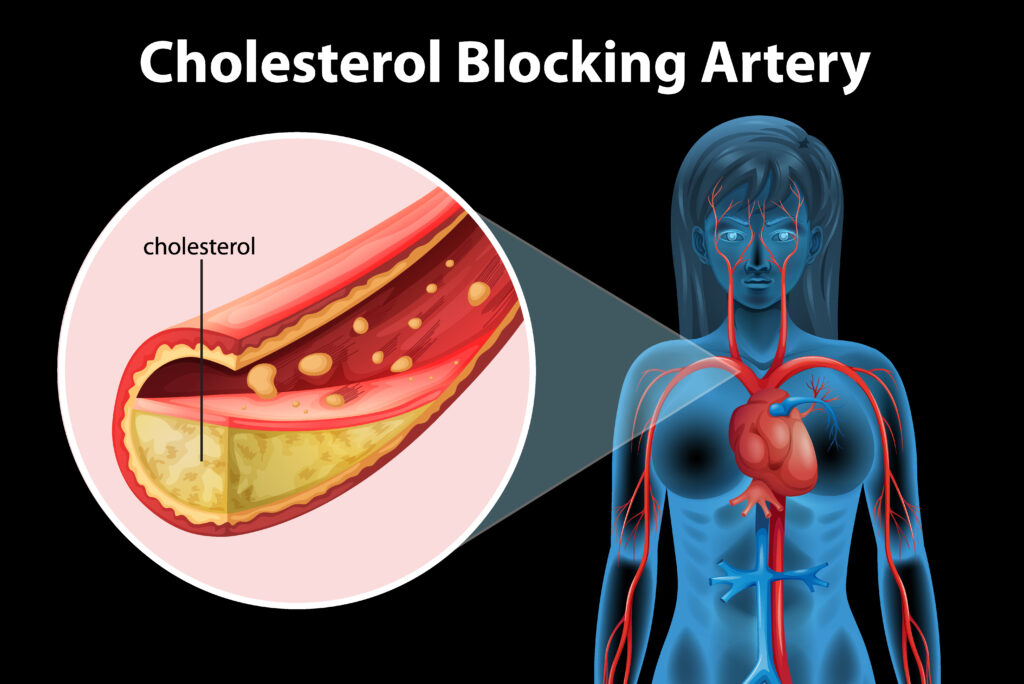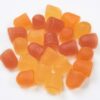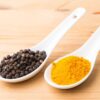Keep Your Arteries Clear And Prevent Atherosclerosis With Turmeric
- Posted on
 Taiba Tariq
Taiba Tariq- Categories: Turmeric Nutrition

How Turmeric Prevents Clogged Arteries
Turmeric is a superfood you should not skip whenever you talk about heart health, as it is a cardio-friendly spice on this planet! While protecting the heart also fights many metabolic conditions and reduces oxidative stress that augments heart diseases such as hardening, narrowing, and clogging your arteries. If you say turmeric for arteries cleansing is your best friend, it’d not be wrong.
Over 200 research-backed studies have looked into the healing effects of Turmeric and its potent bioactive chemical curcumin in various heart disorders. Studies render ‘turmeric for arteries’ as best natural neutraceutical.
Arteries are the blood vessels or channels that transport oxygenated blood (oxygen-rich blood) from the heart to the rest of the body parts. This is essential for survival. Occasionally our diet and lifestyle choices can cause arteries to become jammed, which raises the chances of a heart attack or stroke. This is a term referred to as atherosclerosis, often neglected until signs such as chest pain start to arise. Many common foods we eat can increase the likelihood of clogging arteries.
In this article, we will cover Foods with specific properties, significantly turmeric for arteries, that can help the clogged arteries open up and prevent narrowing so that blood can flow freely in these arteries.
Health Benefits Of Turmeric For Your Arteries
Turmeric is the bright orange spice that is often found in Indian cuisine. It’s loaded with antioxidants that prevent fatty deposits from developing in the arteries. It also contains anti-inflammatory properties, which help control the arteries from hardening over time. Also, it enhances the functionality of the heart and cardiovascular system. While turmeric is typically used to reduce joint inflammation, studies found it can also improve the body’s antibody response. Researchers found that Turmeric can be a natural way to help those suffering from heart and immune disruptions.
Scientists define that Turmeric is constantly regarded as a valuable herbal treatment.
Even today, people still use Turmeric. This is because of the numerous analyses that support the claims about spice. The study also describes that the plant appears to have the following effects:
- Anti-inflammatory
- Antioxidant
- Immunostimulant ( Strengthen Immune System)
- Antimutagenic
- Hepatoprotective
- Antimicrobial
- Antiseptic
What does the Research Say?
Curcumin, the main ingredient in the curry spice turmeric, is an innately arising antioxidant known as a polyphenol. Polyphenols are located in plants that have anti-inflammatory and other shielding effects. According to Web MD, recent research in mice shows that the compound that gives curry spice its yellow color may save arteries from fatty buildup.
The present study indicates curcumin in Turmeric may stop the development of atherosclerosis, or clogged arteries-a critical threat for heart attacks and strokes.
Researchers in France provided 20 mice with a diet supplemented with curcumin or a comparison diet not supplemented with curcumin. After four months, mice fed on the curcumin-based diet had a 26 percent decline in fatty buildup in their arteries compared to mice on the comparison diet. Additionally, curcumin emerged to change the genetic signaling involved in plaque buildup at the molecular level.
How Arteries Get Blocked And How Curcumin Work?
Atherosclerosis affects every cell in the body, from the head to the toes. Each artery is a muscular tube with smooth tissues that are made up of numerous layers. Healthy arteries provide for smooth blood flow. However, arteries get clogged when plaque builds up on their inner walls. Fat, cholesterol, cellular waste, and fibrin are parts of the plague. Atherosclerosis restricts the free passage of blood via arteries. Blood flow is reduced as a result, and if the plaque builds up too much, it might obstruct blood flow. The natural polyphenolic compound curcumin, found in the rhizomes of Curcuma longa L., has potent anti-inflammatory, anti-cancer, anti-antioxidant, and anti-atherosclerotic properties.
How to unclog arteries with turmeric?
Since ancient times, turmeric has been a handy spice used as a remedy for many diseases. Turmeric may also be used to detoxify arteries. It includes a chemical known as curcumin. The rhizomes of Curcuma longa L. contain a naturally occurring polyphenolic chemical called curcumin, which has robust anti-inflammatory, anti-cancer, anti-antioxidant, and anti-atherosclerotic actions. Turmeric extracts can lower low-density lipoprotein levels while relaxing blood vessels and preventing plaque from accumulating in the arteries. You may consume turmeric in the form of tea or add it to your favorite meals.
Turmeric prevents arterial damage.
The sole reason behind heart ailments is an accumulation of plaque. Plaque narrows the passage of blood flow to the heart, brain, and other body parts. Besides regulating blood pressure, turmeric helps take care of the damage caused by high blood pressure.

LDL (or bad) cholesterol gathers in arteries in the form of plaque in the walls of arteries. Curcumin prevents fat deposits in the arteries. Having high blood pressure in this state causes damage to tissues in arteries.
Curcumin in turmeric can help in preventing further damage caused to arteries because of high blood pressure.
Turmeric for Heart Blockage
Turmeric slows the advancement of heart disease by improving the blood vessel lining’s capacity to function. So this helps you manage your blood pressure, blood coagulation, and other crucial heart health factors. Adding turmeric to the flavor of your food may help your body create less bad cholesterol (LD), according to a study. Furthermore, preliminary studies show that curcumin may reduce the number of heart attacks that bypass patients experience after surgery.
Turmeric inhibits Angiotensin Converting Enzymes & Platelet Variations.
Turmeric inhibits an angiotensin-converting enzyme that narrows down blood vessels. It can further help relax blood vessels, thus regulating blood pressure. When Hypertension causes variations in the platelet count in the blood, it leads to clots in arteries, which in turn blocks the blood supply from the heart to the rest of the body. Most studies claim that turmeric can prevent variations in platelet activity due to high blood pressure.
Turmeric improves the Endothelial Function of the Heart.
As we age, this endothelial function gets weaker. The oxidative stress triggers inflammation, plaque deposits, and hence blocked arteries leading to a heart attack. Curcumin in turmeric improves the function of endothelial cells. By widening and relaxing the blood vessels, curcumin helps bring down blood pressure.
Does turmeric clean your arteries?
Turmeric’s anti-inflammatory and antioxidant properties may help reduce heart disease risk. Studies have shown that turmeric helps halt the spread of heart disease. Healthy people over the age of 50 developed higher resistance to arterial endothelium. After taking curcumin capsules for 12 weeks, the risk of having a heart attack in the hospital in the days before and after surgery was reduced by 65% in the group that took 4 grams of curcumin daily.
Does turmeric remove plaque from arteries?
According to testing, turmeric may help prevent atherosclerosis, the build-up of plaque that can clog arteries and cause a heart attack or stroke. In animal experiments, a turmeric extract decreased cholesterol levels and prevented LDL (bad) cholesterol from accumulating in blood vessels. On top of that, the use of turmeric along with prescription cholesterol-lowering drugs may be therapeutic. Research indicates that curcumin is secure and that lowering certain cholesterol levels may safeguard people at risk of heart disease. More analysis is necessary to ascertain how much and what sort of curcumin is most beneficial.
How to Use Turmeric to Clean Arteries?
Turmeric supplements daily are the best addition to excluding the risk of heart ailments. Try to add turmeric-curcumin-based supplements to your daily regimen.
Earlier studies in rats showed that curcumin could prevent heart failure. Turmeric-based compounds, such as capsules, pills, or turmeric gummies have also been praised as a potential treatment for Alzheimer’s, arthritis, and breast cancer.
Turmeric Milk has many tremendous and robust health benefits owing to its ability to regulate blood pressure and control the risky factors of heart conditions. Science and research prove its genuineness for your heart’s health! Apart from this, you can use turmeric while cooking your meals.
If you don’t want to go for turmeric supplements, add the spice while cooking.
- Have turmeric tea in the morning.
- Add a pinch of the organic turmeric powder to your salads at noon.
- Sprinkle fresh turmeric on steamed cauliflower in the evenings
- Mix it into brown turmeric rice at dinner.
NOTE: You must add black pepper and ginger while using turmeric to the recipe. These warming spices will ensure curcumin absorption in your bloodstream.
Here is a list of some other potential remedies and diet that you must add to your diet to clean unclogged arteries:
- Cruciferous vegetables (broccoli, cabbage, and cauliflower)
- Citrus fruits
- Spices (ginger, pepper, chili, and cinnamon)
- Fish
- Berries
- Olive oil
- Oats
- Onions & tomatoes
- Cocoa & Dark chocolate
- Green Tea
- Greens and beans
Avoid any foods that have the words on the label [indicating bad fats], often found in commercially fried foods, donuts, cookies, and potato chips:
- ‘trans’
- ‘hydrogenated’
- ‘partially hydrogenated’
Safety & Dosage
- Rare medical news of people taking too high doses of turmeric points that it can induce an altered heartbeat. Higher turmeric dosages may also push illusion, mild fever, stomach upset, or kidney stones.
- Turmeric is also a blood thinner, be sure to stop at least a week before any surgical procedures and consult your physician before taking it. Also, it may have mild side effects and interactions with certain drugs or prescriptions.
- People having gallstones or patients suffering from any obstruction in their bile passage should use turmeric in limited amounts and under the supervision of their doctor.
REFERENCES
Karimian MS, Pirro M, Johnston TP, Majeed M, Sahebkar A. Curcumin and Endothelial Function: Evidence and Mechanisms of Protective Effects. https://pubmed.ncbi.nlm.nih.gov/28228072/ Curr Pharm Des. 2017;23(17):2462-2473. doi: 10.2174/1381612823666170222122822. PMID: 28228072.
Wongcharoen W, Jai-Aue S, Phrommintikul A, Nawarawong W, Woragidpoonpol S, Tepsuwan T, Sukonthasarn A, Apaijai N, Chattipakorn N. Effects of curcuminoids on frequency of acute myocardial infarction after coronary artery bypass grafting. https://pubmed.ncbi.nlm.nih.gov/22481014/ Am J Cardiol. 2012 Jul 1;110(1):40-4. doi: 10.1016/j.amjcard.2012.02.043. Epub 2012 Apr 3. PMID: 22481014.
Li H, Sureda A, Devkota HP, Pittalà V, Barreca D, Silva AS, Tewari D, Xu S, Nabavi SM. Curcumin, the golden spice in treating cardiovascular diseases. https://pubmed.ncbi.nlm.nih.gov/30716389/ Biotechnol Adv. 2020 Jan-Feb;38:107343. doi: 10.1016/j.biotechadv.2019.01.010. Epub 2019 Feb 1. PMID: 30716389.
Santos-Parker JR, Strahler TR, Bassett CJ, Bispham NZ, Chonchol MB, Seals DR. Curcumin supplementation improves vascular endothelial function in healthy middle-aged and older adults by increasing nitric oxide bioavailability and reducing oxidative stress. https://www.ncbi.nlm.nih.gov/pmc/articles/ Aging (Albany NY). 2017 Jan 3;9(1):187-208. doi: 10.18632/aging.101149. PMID: 28070018; PMCID: PMC5310664.
Wongcharoen W, Jai-Aue S, Phrommintikul A, Nawarawong W, Woragidpoonpol S, Tepsuwan T, Sukonthasarn A, Apaijai N, Chattipakorn N. Effects of curcuminoids on frequency of acute myocardial infarction after coronary artery bypass grafting. https://pubmed.ncbi.nlm.nih.gov/22481014/ Am J Cardiol. 2012 Jul 1;110(1):40-4. doi: 10.1016/j.amjcard.2012.02.043. Epub 2012 Apr 3. PMID: 22481014.
Singh L, Sharma S, Xu S, Tewari D, Fang J. Curcumin as a Natural Remedy for Atherosclerosis: A Pharmacological Review. https://pubmed.ncbi.nlm.nih.gov/34279384/ Molecules. 2021 Jul 1;26(13):4036. doi: 10.3390/molecules26134036. PMID: 34279384; PMCID: PMC8272048.[/vc_column_text][/vc_column][/vc_row]
Cox FF, Misiou A, Vierkant A, Ale-Agha N, Grandoch M, Haendeler J, Altschmied J. Protective Effects of Curcumin in Cardiovascular Diseases-Impact on Oxidative Stress and Mitochondria. Cells. 2022 Jan 20 https://www.ncbi.nlm.nih.gov/pmc/articles/PMC8833931/ ;11(3):342. doi: 10.3390/cells11030342. PMID: 35159155; PMCID: PMC8833931.
Tsui PF, Lin CS, Ho LJ, Lai JH. Spices and Atherosclerosis. https://www.ncbi.nlm.nih.gov/pmc/articles/PMC6266658/ Nutrients. 2018 Nov 10;10(11):1724. doi: 10.3390/nu10111724. PMID: 30423840; PMCID: PMC6266658.
Taiba Tariq
Taiba Tariq is a healthcare nutrition hobbyist, enthusiastic about researching healthcare & skincare news while analyzing the latest and science-backed evidence about nutrition, skin care, and supplements. She wants to help people regain their beauty, health, and well-being through natural means.
all author posts




